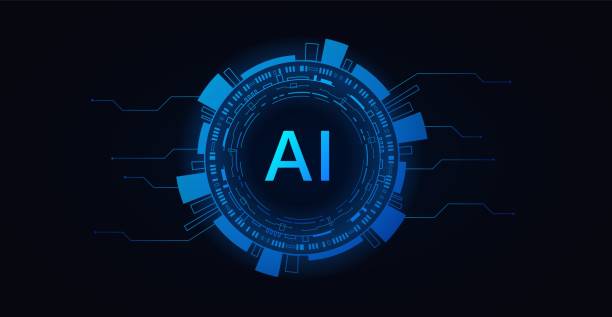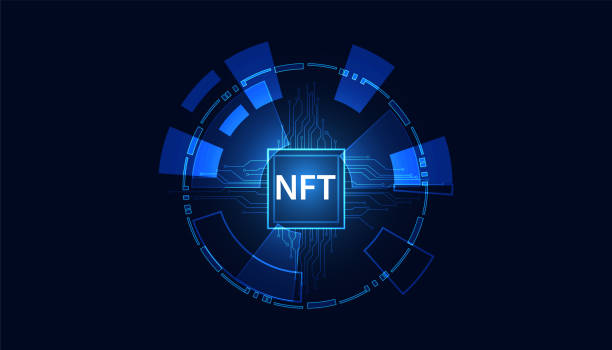### What is Artificial Intelligence? Definitions, Key Concepts, and Types

Artificial Intelligence (Artificial Intelligence on Wikipedia) is a broad field in computer science that aims to create machines capable of performing tasks that typically require human intelligence.
These tasks include learning, reasoning, problem-solving, understanding natural language, and pattern recognition.
Simply put, #Artificial_Intelligence tries to program computers to be able to “think.”
From early definitions to today’s complex concepts, machine learning, deep learning, neural networks, and natural language processing are all subsets of artificial intelligence.
There are different types of artificial intelligence, including Weak AI (ANI) which is designed to perform specific tasks, Strong AI (AGI) which has cognitive abilities similar to humans, and Super AI (ASI) which surpasses human intelligence.
The applications of artificial intelligence are expanding daily and have a profound impact on our lives.
Is your current online store design not generating the sales you expect?
Rasaweb specializes in professional online store design!
✅ An attractive and user-friendly site with the aim of increasing sales
✅ High speed and security for an ideal shopping experience⚡ Get free advice on designing an online store with Rasaweb!
History of Artificial Intelligence from Dream to Reality

The history of artificial intelligence dates back to the 1950s, when researchers first became interested in the possibility of building machines that could think.
The Dartmouth Conference in 1956 is considered a milestone in this field.
In the early decades, significant advances were made in areas such as problem solving and natural language processing.
However, due to hardware limitations and data shortages, progress slowed down and we experienced periods called “AI winter.”
In recent decades, with advances in hardware, increased data volumes, and the development of new algorithms, deep learning, artificial intelligence has once again become the focus of attention.
Today, we see widespread applications of artificial intelligence in various fields, including self-driving cars, medical diagnosis, and customer service.
Artificial intelligence is advancing rapidly and is expected to play a much more important role in our lives in the future.
Applications of Artificial Intelligence in Various Industries

Artificial intelligence is transforming various industries.
In healthcare, artificial intelligence is used for disease diagnosis, drug development, and personalized care.
In the financial industry, artificial intelligence is used for fraud detection, risk management, and customer service.
In the manufacturing industry, artificial intelligence is used for process automation, quality improvement, and cost reduction.
In the transportation industry, artificial intelligence is used to develop self-driving cars and optimize routes.
These are just a few examples of the widespread applications of artificial intelligence in various industries.
As technology advances, artificial intelligence is expected to be used in more industries and help improve efficiency and innovation.
| Industry | Artificial Intelligence Application |
|---|---|
| Healthcare | Disease diagnosis, drug development |
| Finance | Fraud detection, risk management |
| Manufacturing | Process automation, quality improvement |
| Transportation | Self-driving cars, route optimization |
Challenges and Limitations of Artificial Intelligence

While artificial intelligence has a lot of potential, it also faces challenges and limitations.
One of the challenges is the need for large amounts of data to train artificial intelligence models.
This data must be of high quality and properly labeled.
Another challenge is the issue of bias in data.
If the data used to train artificial intelligence models reflects biases present in society, the artificial intelligence models will also learn and replicate these biases.
Also, artificial intelligence faces ethical and social issues, including the issue of job losses and concerns about privacy.
To overcome these challenges, there is a need to develop new algorithms, collect high-quality data, and develop appropriate ethical and legal regulations.
Still don’t have a company website and are missing online opportunities? With professional company website design by Rasaweb,
✅ Double the credibility of your business
✅ Attract new customers
⚡ Free consultation for your company website!
The Future of Artificial Intelligence: Prospects and Possibilities

The future of artificial intelligence is very exciting.
Artificial intelligence is expected to become increasingly integrated into our lives in the coming years.
Self-driving cars, intelligent virtual assistants, and humanoid robots are just a few examples of the potential applications of artificial intelligence in the future.
Also, artificial intelligence can help solve some of the world’s biggest challenges, including climate change, poverty, and disease.
However, to realize this potential, there is a need to invest in research and development, train a skilled workforce, and develop appropriate policies.
The future of artificial intelligence depends on the decisions we make today.
The Impact of Artificial Intelligence on the Labor Market

Artificial intelligence has a significant impact on the labor market.
On the one hand, artificial intelligence can increase productivity by automating repetitive and dangerous tasks and create new opportunities for economic growth.
On the other hand, artificial intelligence can lead to job losses, especially in industries with simple and repetitive tasks.
To address this challenge, there is a need to invest in workforce training and retraining so that people can acquire the new skills needed to work in the world of artificial intelligence.
Also, there is a need to create support systems for people who lose their jobs.
The impact of artificial intelligence on the labor market is a complex issue that requires careful consideration and planning.
Ethics in Artificial Intelligence: Considerations and Challenges
![]()
Ethical issues in artificial intelligence are very important.
Artificial intelligence algorithms can perpetuate biases and make unfair decisions.
Data privacy, accountability for errors and failures of artificial intelligence systems, and the control of artificial intelligence are among the ethical challenges.
Developing ethical and legal guidelines, transparency in algorithms, and stakeholder participation in decision-making are essential to ensure the responsible development and use of artificial intelligence.
Awareness of these ethical issues and efforts to address them are essential to benefit from the benefits of artificial intelligence.
| Case | Description |
|---|---|
| Data Privacy | Protection of personal information against misuse |
| Bias in Algorithms | Preventing discrimination in artificial intelligence decisions |
| Accountability | Determining responsibility in case of error |
| Control | Preventing illegal use of artificial intelligence |
Machine Learning and Deep Learning: Differences and Applications

Machine learning and deep learning are two important subsets of artificial intelligence.
Machine learning refers to algorithms that allow computers to learn from data without explicit programming.
Deep learning is a specific type of machine learning that uses deep neural networks to analyze data.
Deep learning has been very successful in areas such as image recognition, natural language processing, and speech recognition.
The main difference between machine learning and deep learning is the amount of human involvement in the learning process.
In traditional machine learning, humans must select important features of the data and provide them to the algorithm.
In deep learning, the algorithm can automatically extract important features from the data.
This makes deep learning more suitable for solving more complex problems.
Tired of losing business opportunities due to not having a professional company website? Don’t worry anymore! With Rasaweb’s company website design services:
✅ The credibility and professionalism of your brand will increase.
✅ You will attract more customers and sales leads.
⚡ Get a free consultation to get started now!
How Can We Prepare to Enter the World of Artificial Intelligence?

Entering the world of artificial intelligence requires acquiring specific skills and knowledge.
The first step is to learn the basic concepts of computer science and mathematics.
Then, you can learn programming languages such as Python and R.
Python is known as the main language of artificial intelligence development.
Also, you should be familiar with artificial intelligence libraries and frameworks such as TensorFlow, Keras and PyTorch.
In addition to technical skills, soft skills such as problem solving, critical thinking and creativity are also essential for success in this field.
Participating in online training courses and workshops, reading scientific articles and practical projects can help you learn these skills.
Artificial intelligence is a dynamic and evolving field, so continuous learning and staying up-to-date with the latest advances is essential.
Artificial Intelligence in Iran: Opportunities and Challenges

Iran has great potential for the development of artificial intelligence.
Skilled human resources, access to data and government support are among the opportunities available in this field.
However, there are also challenges, including a lack of investment, limited access to advanced technologies, and problems with attracting and retaining specialists.
To take advantage of the opportunities and overcome the challenges, there is a need to develop a national artificial intelligence strategy, invest in research and development, create an innovation ecosystem, and facilitate cooperation between universities, industry and government.
The development of artificial intelligence in Iran can help economic growth, improve the quality of life and solve the problems of society.
Also, artificial intelligence can create many job opportunities.
FAQ
| Question | Answer |
|---|---|
| What is the definition of Artificial Intelligence (AI)? | It is a field in computer science that aims to create intelligent machines that can think, learn, solve problems, and make decisions like humans. |
| Mention some common AI applications. | They include self-driving cars, voice assistants (such as Siri and Alexa), recommendation systems (such as Netflix and Amazon), facial recognition, and medical diagnosis. |
| What is the difference between Narrow Artificial Intelligence (ANI) and General Artificial Intelligence (AGI)? | Narrow AI specializes in one specific task, while General AI has a human intellectual ability to perform any cognitive task. |
| What is Machine Learning and how does it relate to AI? | Machine learning is a branch of AI that focuses on developing algorithms that allow systems to learn from data without explicit programming. |
| What are Artificial Neural Networks? | They are computational models inspired by the structure and function of the human brain, and are used in deep learning to process data and discover complex patterns. |
| Mention some ethical challenges related to AI. | These include privacy issues, bias in data and algorithms, job loss, and accountability in the event of errors or unfair decisions. |
| What is Natural Language Processing (NLP)? | It is a branch of AI that focuses on enabling computers to understand, interpret, and generate human language in a useful and interactive way. |
| How can AI affect the job market? | It can lead to the automation of some routine tasks, which requires retraining workers and creating new jobs in the areas of design, development, and maintenance of AI systems. |
| What is Computer Vision? | It is a field in AI that enables computers to “see” and understand and interpret images and videos in the same way that humans do, enabling them to recognize objects and faces. |
| What is the importance of data in developing AI systems? | Data is the fuel that feeds AI systems, especially in machine learning. The quality and quantity of data greatly affect the accuracy and performance of models and their ability to learn and make correct decisions. |
And other services of Rasa Web Advertising Agency in the field of advertising
Smart Social Media: A creative platform to improve the click-through rate by accurately targeting the audience.
Smart Marketing Automation: An effective tool to improve SEO ranking with the help of Google Ads management.
Smart Website Development: A combination of creativity and technology for digital branding by accurately targeting the audience.
Smart Marketplace: A new service to increase online growth through the use of real data.
Smart Marketing Automation: Designed for businesses looking for online growth by accurately targeting the audience.
And more than hundreds of other services in the field of internet advertising, advertising consulting and organizational solutions
Internet advertising | Advertising strategy | Advertorial
Resources
MIT Technology Review: Artificial Intelligence
,Wired: Artificial Intelligence
,Brookings: Artificial Intelligence
,Artificial Intelligence News
? Are you ready to transform your business in the digital world? Rasaweb Digital Marketing Agency with expertise in professional website design, SEO, and content marketing, provides a comprehensive solution for your growth and visibility. With us, discover the true potential of your brand.
📍 Tehran, Mirdamad Street, next to the Central Bank, South Kazerun Alley, Ramin Alley No. 6




